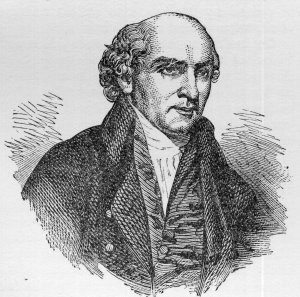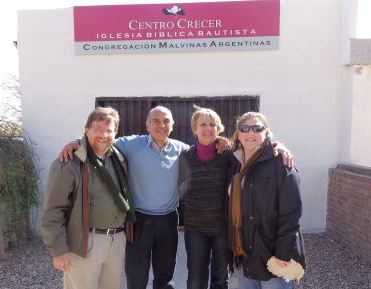The Absolute Necessity of Prayer
In 1792 William Carey published what is probably the most significant book on missions since the time of the apostles. Its full title is An Enquiry into the Obligations of Christians to Use Means for the Conversion of the Heathens. Carey’s argument is encapsulated in this title. Briefly stated, Carey believed the Great Commission is still incumbent on us and that every legitimate means should be employed in the fulfillment of the command. In other words, Carey favors the active use of means.
By means, Carey refers to everything, from the printing press and sailing ships, to innovative organizational structures like the voluntary society. If we left it there we might conclude that Carey was a bit of a pragmatist. That would be a mistake, of course, since Carey had a high view God’s sovereignty and he built his mission theology on the bedrock of the doctrine of divine providence.
In the Enquiry, Carey makes a statement about prayer that puts all of this into perspective. He writes:
“One of the first, and most important of those duties which are incumbent upon us, is fervent and united prayer. However the influence of the Holy Spirit may be set at nought, and run down by many, it will be found upon trial, that all means which we can use, without it, will be ineffectual. If a temple is raised for God in the heathen world, it will not be by might, nor by power, nor by the authority of the magistrate, or the eloquence of the orator; but by my Spirit, saith the Lord of Hosts. We must therefore be in real earnest in supplicating his blessing upon our labors.”

William Carey
We will come back to this statement, but for now, let’s focus on the idea that all of our efforts will be “ineffectual” if not accompanied by the power of the Spirit of God. While Carey wrote his Enquiry to break through the numb passivity of the churches of his day, he did not believe that all that was required was human effort by means of human methods. He argues vigorously for the use of all “legitimate means,” and yet he states that their employment will be useless unless God chooses to act.
Carey certainly thought in terms of printing presses, ships, and societies—the nuts and bolts of mission work. In this passage of the Enquiry he expands the list to include the power of human persuasion and the authority of human government. Carey would have recognized a role for oratorical skills in the preaching of the Gospel. As a Baptist, he would have been much less inclined to believe that secular government had a role in spreading the kingdom of God. But in either case, he wants us to see that ultimately a temple can only be raised by God in a lost world by God’s own power.
Then he said to me, “This is the word of the LORD to Zerubbabel: Not by might, nor by power, but by my Spirit, says the LORD of hosts.
In this statement on prayer, Carey is paraphrasing from Zechariah 4:6, a divine statement about the construction of the temple in Jerusalem. Carey applies it to the larger task of world mission. One of our students, Roberto Romero could attest to the validity of Carey’s application of the text. Roberto and his wife Elida are a couple in their sixties who for many years spoke to me about the needs of a town near the city of Cordoba in Argentina. Malvinas has a population of about 10,000 people. They are generally poor and there are real problems with drug dealers in the area. Many years ago, they took me to visit Malvinas. They hoped we might start a church in the area. At the time we didn’t have the resources or a pastor.
For ten years Roberto and Elida prayed that God would send a pastor. God eventually answered that prayer in a way that was surprising to Roberto and Elida. They began a small group in the area that began to gradually grow. Roberto saw the need to be better prepared so he began to take classes with Seminario Carey. The group continued to grow and a few years ago they rented property to begin Sunday services.
Roberto continued studying. He will finish his final course of the certificate program in Seminario Carey this year. In November, Roberto will be ordained as pastor of the work in Malvinas.
Roberto would agree that we should apply Carey’s statement on the necessity of prayer to every area of our life; whether it be our local church, our job, our family, or the hidden kingdom of our own heart. A temple to almighty God will only be built by the power of his Spirit. We must pray.

“A temple to the almighty God will only be built by the power of his Spirit. We must pray.”
This is really a simple lesson, but I find my heart rebels against it. I have had to learn it over and over. But God is very good and he uses my frustrations to drive me to my knees. Again and again He has brought me back to the truth that unless He builds the house we labor in vain. On the other hand, when the power of his Spirit begins to move, nothing can stand in the way, and what he builds is so beautiful that it inspires worship in the hearts of all who see it.
